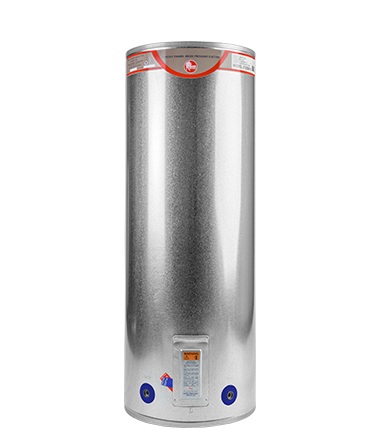Harnessing the Power of the Sun: How Solar Hot Water Systems Can Transform Your Home
Solar hot water systems are one of the most efficient and sustainable solutions for providing hot water to your home. By harnessing the abundant energy of the sun, these systems can significantly reduce energy consumption, lower utility bills, and contribute to a greener environment. Whether you are looking to make your home more energy-efficient or reduce your carbon footprint, here’s how solar hot water systems can transform your household.
1. How Solar Hot Water Systems Work
Solar hot water systems use solar panels, called collectors, to capture the sun’s energy and convert it into heat, which is then used to warm water stored in a tank. These collectors, often placed on the roof, absorb sunlight and transfer the heat to a fluid (usually water or a heat-transfer fluid) in the system. This heated fluid then flows through a heat exchanger to warm the water stored in a tank, ready for household use.
There are two main types of solar hot water systems:
Active systems, which use pumps to circulate water or the heat-transfer fluid through the collectors.
Passive systems, which rely on natural convection (hot water rises, cold water sinks) to move the water without mechanical assistance.
Both systems are highly effective, but the choice depends on factors such as climate, roof orientation, and household water needs.
2. Significant Reduction in Energy Bills
One of the most compelling benefits of installing a solar hot water system is the potential for significant savings on energy bills. Conventional electric or gas water heaters can account for 20-30% of a home’s energy usage. By relying on free solar energy, solar hot water systems can reduce or even eliminate the need for electricity or gas to heat water, resulting in lower monthly utility costs.
In sunny climates, solar hot water systems can meet up to 90% of a home’s hot water needs, depending on system size and efficiency. Even in less sunny regions, a solar hot water system can drastically cut energy use, particularly during the warmer months.
3. Environmental Benefits
Solar hot water systems offer substantial environmental advantages, making them an excellent choice for homeowners looking to reduce their carbon footprint. By utilizing the sun’s renewable energy, these systems dramatically reduce greenhouse gas emissions compared to traditional fossil fuel-powered water heaters.
Switching to solar hot water can help decrease your home’s reliance on non-renewable energy sources, reducing your impact on the environment. Over the lifetime of the system, the reduction in carbon emissions can be significant, contributing to a cleaner, more sustainable future.
4. Increased Home Value
Investing in a solar hot water system can increase the overall value of your home. As more buyers become environmentally conscious, energy-efficient features like solar water heating are becoming attractive selling points. Homes with solar energy systems are often viewed as modern, eco-friendly, and cost-efficient, which can lead to higher property values and a competitive edge in the housing market.
Additionally, many regions offer incentives, tax credits, or rebates for homeowners who install solar energy systems, further enhancing the financial benefits and making the initial investment more affordable.
5. Low Maintenance and Long Lifespan
Solar hot water systems are known for their durability and low maintenance requirements. With few moving parts, these systems are less likely to experience mechanical failures, meaning fewer repair costs and a long lifespan—often 20 years or more.
Regular maintenance typically includes occasional checks on the collectors, pumps, and fluid levels, as well as cleaning the solar panels to ensure optimal efficiency. The system’s simplicity means that, with proper care, it will continue to provide hot water for decades with minimal upkeep.
6. Energy Independence
By using solar energy to heat water, homeowners can reduce their dependence on fossil fuels and the power grid. This is particularly beneficial during energy price fluctuations, power outages, or in remote areas where access to conventional energy sources may be limited or expensive.
Solar hot water systems allow homeowners to take greater control of their energy needs, providing a reliable and consistent source of hot water that isn’t vulnerable to price hikes or supply issues.
7. Supporting Renewable Energy Goals
As governments and organizations around the world push for renewable energy adoption, solar hot water systems play a critical role in helping individuals contribute to these efforts. Many countries and regions have set ambitious targets for reducing carbon emissions and increasing renewable energy use, and by installing a solar hot water system, you actively participate in these goals.
Furthermore, some regions offer financial incentives such as grants, rebates, or tax credits to offset the upfront cost of installation, making it easier for homeowners to make the switch to solar power.
Conclusion
Solar hot water systems offer a transformative approach to home water heating, combining efficiency, cost savings, and environmental sustainability. By harnessing the power of the sun, homeowners can significantly reduce their energy bills, decrease their carbon footprint, and contribute to the global shift toward renewable energy. With low maintenance requirements and a long lifespan, solar hot water systems are an excellent investment for any household looking to embrace green technology while enjoying the comfort of reliable, cost-effective hot water.
Hot Water Solutions
3d Taid Place, Rosedale, Auckland
0800497658




Comments
Post a Comment